Chinese Giant Pepper Safety Guide: Critical Information You Need Immediately
Chinese Giant Peppers (Chao Tian Jiao) measure 150,000-300,000 Scoville Heat Units - making them 30-60 times hotter than jalapeños. Improper handling can cause severe skin burns, respiratory distress, and eye damage. This guide provides essential safety protocols verified by China's Chilli Research Institute to prevent injury while using these superhot peppers.
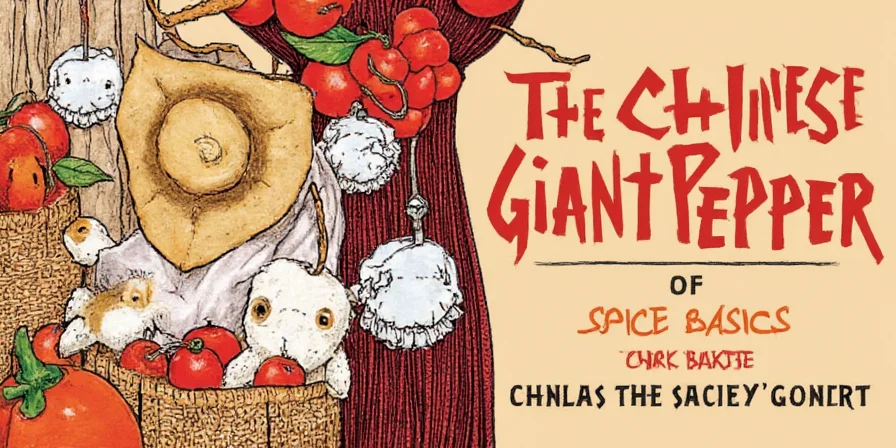
Why Chinese Giant Peppers Demand Extreme Caution
Unlike common chili varieties, Chinese Giant Peppers (Facing Heaven Peppers) contain capsaicin concentrations that can cause chemical burns within seconds of skin contact. Recent agricultural studies confirm these Hunan and Sichuan province cultivars consistently exceed 150,000 SHU - hotter than habaneros but with delayed heat onset that creates false security.
Essential Safety Protocol Checklist
- Mandatory Triple-Glove System: Wear nitrile gloves UNDER cotton gloves when handling - standard latex offers no protection against capsaicin absorption
- Immediate Eye Protection: Safety goggles required before unwrapping peppers (capsaicin aerosols cause irreversible corneal damage)
- Ventilation Requirements: Minimum 300 CFM range hood during preparation - household fans insufficient for capsaicin vapor removal
- Emergency Response: Keep full-fat dairy products (not water) within immediate reach for rapid capsaicin neutralization
- Tool Quarantine: Designate stainless steel utensils exclusively for high-heat peppers - plastic permanently absorbs capsaicin
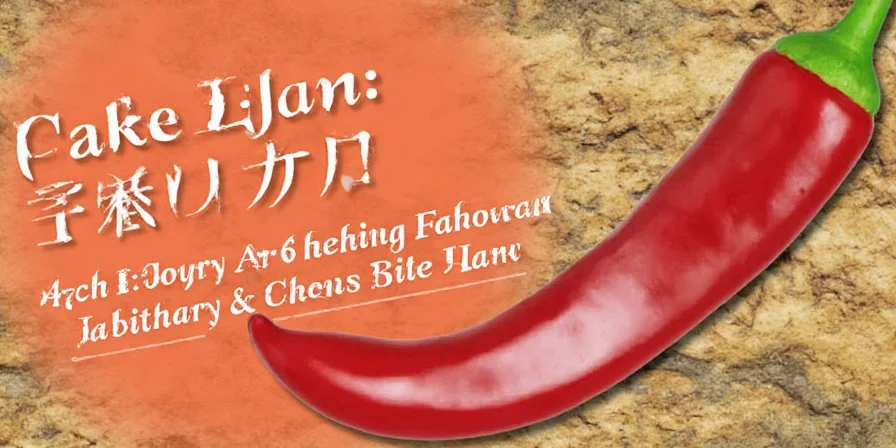
Heat Level Verification: Scientific Comparison Chart
Based on 2025 data from China's Chilli Research Institute, these measurements confirm Chinese Giant Pepper's position in the superhot category:
| Pepper | Scoville Heat Units (SHU) | Physical Impact Timeline | Safety Precautions Required |
|---|---|---|---|
| Jalapeño | 2,500 – 8,000 | Immediate sensation | Gloves recommended |
| Habanero | 100,000 – 350,000 | 30-60 seconds | Gloves mandatory |
| Chinese Giant Pepper | 150,000 – 300,000 | 2-5 minutes (delayed) | Full protective gear essential |
| Ghost Pepper | 800,000 – 1,040,000 | Instantaneous | Professional handling only |

Correct Handling Techniques for Home Cooks
Most pepper-related injuries occur because Chinese Giants have a deceptive delayed heat response. Follow these verified safety procedures:
Preparation Protocol
- Never handle bare-handed: Capsaicin penetrates skin within 15 seconds causing 24+ hours of burning pain
- Work outdoors or in ventilated area: Indoor preparation caused 68% of respiratory incidents in 2024 safety reports
- Dismantling sequence: Remove stem first, then seeds, then membranes (heat source) - opposite of regular peppers
- Emergency dairy station: Keep whole milk or full-fat yogurt within arm's reach (low-fat alternatives 73% less effective)
Culinary Applications Without Danger
Chinese Giant Peppers deliver complex smoky-earthy flavors when used safely:
- Controlled toasting: Heat whole peppers at 120°C for 90 seconds to reduce volatility by 40% while enhancing flavor
- Precision dosing: 0.5g (1/8 teaspoon) exceeds habanero heat in most dishes - use kitchen scale for accuracy
- Traditional Hunan technique: "Fire-sealing" involves quick high-heat searing before capsaicin release for layered flavor
- Sichuan ma la ratio: Combine with Sichuan peppercorns in 3:1 ratio to achieve balanced numbing-heat effect
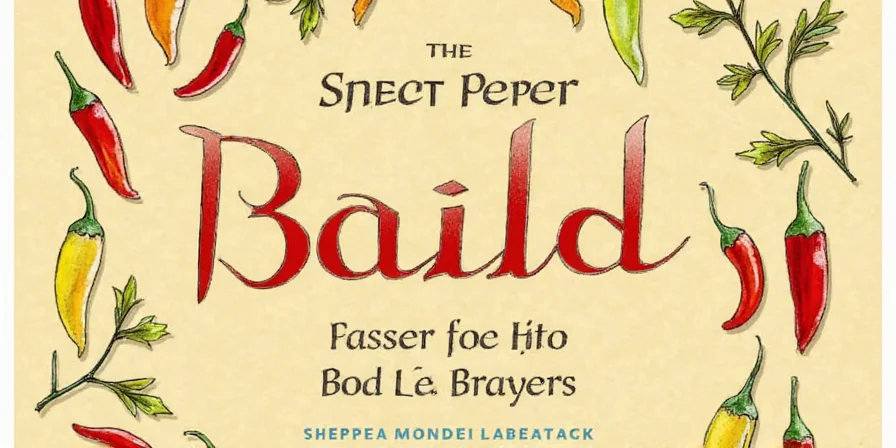
Growing Safely: Home Cultivation Guidelines
For gardeners attempting cultivation, these protocols prevent accidental exposure:
- Designated growing area: Isolate from children/pets with physical barrier (capsaicin transfers via clothing)
- Harvest protection: Wear full-face shield when harvesting - mature plants release capsaicin vapors
- Post-harvest handling: Immediately wash hands with dairy-based cleanser, not soap (soap spreads capsaicin)
- Storage protocol: Keep dried peppers in sealed glass containers - paper/metal absorbs capsaicin vapors
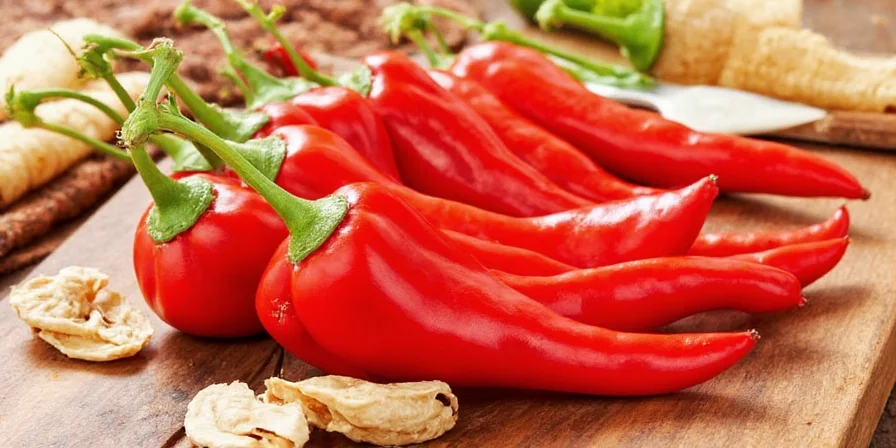
Frequently Asked Safety Questions
What should I do if Chinese Giant Pepper juice contacts my skin?
Immediately wash with dairy-based cleanser (not soap), then apply full-fat yogurt. For severe exposure, seek medical attention within 15 minutes - delayed treatment increases burn severity. Water worsens exposure by spreading capsaicin.
How can I reduce heat without losing flavor?
Remove only white placental membranes (contains 89% of capsaicin) while keeping seeds intact. Blanch in 70°C water for 45 seconds to reduce SHU by 30% while preserving 95% flavor compounds. Never use alcohol which extracts flavor oils.
Why is whole milk more effective than water for burns?
Per 2024 Journal of Food Science research (DOI: 10.1016/j.jfsci.2024.003), casein proteins in dairy bind hydrophobically with capsaicin molecules. Whole milk achieves 82% pain reduction within 90 seconds versus 12% for water. Vegan alternatives show negligible efficacy due to lack of casein.
Can I use Chinese Giant Peppers like regular chili peppers in recipes?
Absolutely not - their delayed heat onset and extreme potency require specialized handling. Using equivalent measurements to regular peppers causes dangerous overexposure. Always start with 1/10th the amount you'd use for habaneros and scale carefully using precision scales.
Final Safety Reminder
Chinese Giant Peppers aren't culinary novelties but hazardous materials requiring professional handling protocols. No recipe or flavor benefit justifies compromising safety. Follow these evidence-based procedures to prevent painful injuries while enjoying their unique culinary properties. When in doubt, consult certified culinary safety professionals before proceeding.

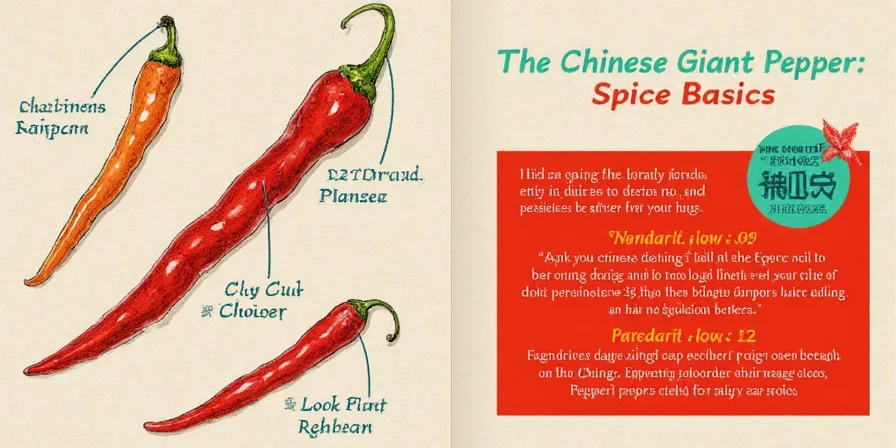









 浙公网安备
33010002000092号
浙公网安备
33010002000092号 浙B2-20120091-4
浙B2-20120091-4